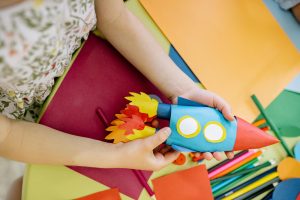Experiential Learning Outside Traditional Classrooms
Welcome to the world of experiential learning! If you are tired of the traditional classroom setting and want to explore new ways of learning, then you have come to the right place. Experiential learning is a hands-on approach to education that goes beyond textbooks and lectures. It allows students to learn by doing, experiencing, and reflecting. In this article, we will explore the concept of experiential learning and how it can be implemented outside of traditional classrooms. So, let’s dive in!
The Concept of Experiential Learning
Experiential learning is a process of actively engaging students in experiences that help them develop skills, knowledge, and values. It is based on the theory of constructivism, which believes that individuals construct their own understanding and knowledge through experiences. Unlike traditional classrooms, experiential learning focuses on the process of learning rather than the content itself.
According to David A. Kolb, a renowned educational theorist, experiential learning involves four stages: concrete experience, reflective observation, abstract conceptualization, and active experimentation. Concrete experience refers to the hands-on experience, while reflective observation is about reflecting on that experience. Abstract conceptualization involves making meaning of the experience, and active experimentation is about applying that knowledge in real-world situations.
Benefits of Experiential Learning
Personalized Learning
One of the main advantages of experiential learning is that it allows for personalized learning. Every individual has a unique way of processing information, and experiential learning caters to that. It allows students to learn at their own pace and in their own way, which leads to a deeper understanding of the subject matter.
Enhanced Engagement
Experiential learning is highly engaging as it involves active participation from students. It creates a sense of curiosity and excitement, which leads to a better understanding and retention of knowledge. As students are actively involved in the learning process, they have a higher level of motivation and enthusiasm.
Real-World Application
Another significant advantage of experiential learning is that it prepares students for the real world. It bridges the gap between theory and practice, giving students the opportunity to apply their learning in real-life situations. This not only helps in skill development but also in building confidence and critical thinking skills.
Ways to Incorporate Experiential Learning Outside Traditional Classrooms
Internships and Apprenticeships
Internships and apprenticeships are excellent examples of experiential learning outside the classroom. They provide students with hands-on experience in a real work environment, giving them the opportunity to apply their knowledge and skills. In addition, students get to interact with professionals and gain practical insights into their chosen field.
Community Service
Community service projects provide students with an opportunity to learn through giving back to the community. Whether it is working with the underprivileged or organizing a charity event, students can gain valuable skills such as teamwork, leadership, and empathy through community service. It also allows them to develop a sense of responsibility and civic engagement.
Field Trips and Study Abroad
Field trips and study abroad programs offer students the chance to learn in real-life settings. It could be a visit to a museum, a historical site, or a foreign country. These experiences allow students to immerse themselves in a different culture, observe different ways of life, and gain a deeper understanding of the subject being studied.
Conclusion
Experiential learning is a powerful tool that can enhance the learning experience and prepare students for the real world. It allows students to learn through doing, which leads to a deeper understanding and retention of knowledge. By incorporating experiential learning outside traditional classrooms, students can develop practical skills, gain real-world experience, and become more engaged and motivated learners. So, let’s step out of the classroom and embrace the world of experiential learning!










